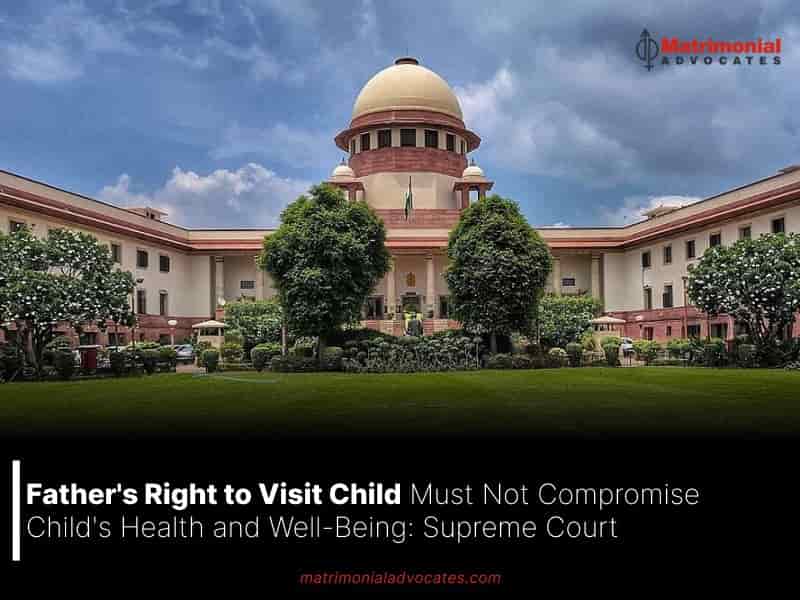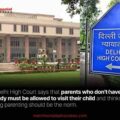
“The interest of the minor child is paramount,” the Court reiterated.
The Supreme Court recently ruled that in child custody disputes, a father’s visitation rights cannot come at the expense of the child’s health and well-being.
A Bench comprising Justices Vikram Nath and PB Varale made this observation while modifying interim visitation arrangements for a child involved in a custody dispute between her estranged parents.
Previously, the Madras High Court had directed the mother to bring the child from Madurai to Karur every week, allowing the father to spend four hours with the child each Sunday. The mother contested this order, arguing that it was detrimental to the child’s health.
The Supreme Court revised the arrangement, directing the father to visit his daughter in Madurai, where she lived with her mother.
“The interest of the minor child is paramount. In the process of adjudicating upon the rights of the parents, her health cannot be compromised. Further, while the respondent has the right to visit the child, it cannot be at the cost of the child’s health and wellbeing,” the Court said.
The child’s parents were married in 2021, a year before her birth. In 2023, the mother filed for divorce, alleging cruelty and domestic violence by her husband.
While the divorce case was ongoing, the husband approached the family court seeking visitation rights. The court granted his request, directing the mother to bring the child to Karur, where the father lived, every Sunday for two hours.
Unhappy with this arrangement, the child’s mother appealed to the Madras High Court, arguing that the 150-kilometer distance between her home in Madurai and Karur, combined with the child’s young age, could harm the child’s health. She also expressed concerns about her estranged husband’s history of violence and his lack of prior involvement in the child’s upbringing.
The High Court acknowledged the father’s status as a natural guardian and upheld his right to visitation. It modified the family court’s order, extending the visits to four hours every Sunday.
The mother then approached the Supreme Court, asserting that the High Court’s decision failed to prioritize the child’s best interests.
The Supreme Court observed that both parents, who are doctors, resided in different cities—Madurai and Karur—separated by a distance of approximately 150 kilometers.
While acknowledging the father’s right to visit his child, the Court stressed that this right should not compromise the child’s health and well-being.
“While the observation of the High Court that the father being the natural guardian cannot be denied of the care and custody of the child and that his agony of missing his child’s childhood cannot be prolonged, is sound and fair, but the same cannot override the interest of the child,” the top court said.
The Court further stated that both the family court and the High Court overlooked the best interests of the minor child and imposed an unnecessarily burdensome visitation arrangement.
“The directions passed by the High Court as well as the Family Court are not supported by any cogent reasons for allowing the visitation to take place at Karur. These orders do not provide any justified reasons and do not appear to have kept the best interest and welfare of the child as paramount. Thus, keeping the interest and well being of the child as the priority, we deem it appropriate and just to move the place of visitation from Karur to Madurai,” the Supreme Court added.
Consequently, the Court relocated the visitation site from Karur to Madurai. It instructed that the father could meet the child every Sunday for four hours at a public park or temple in Madurai, with the mother present nearby at a safe distance.





